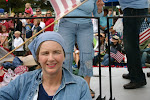DVD Review: Making the Boys (2010)
Two decades of gay-rights activism preceded the Stonewall riots in 1969--and Mart Crowley's 1968 stage play The Boys in the Band may have had more profound and lasting impact on America than one incident of cross-dressers throwing rocks at police did.
Before or after watching the William Friedkin film based on the play, watch this 2010 documentary, which places Crowley's work in the context of larger shifts within the American social climate.
In 1968 even the word "homosexual" was still largely taboo across American media (and "gay" meant happy and "queer" meant strange). The more informal term "gay" to indicate a sexual minority had yet to be widely accepted, and few writers, directors, producers, or actors we willing to risk their careers on material that portrayed homosexuals realistically and sympathetically.
Boys resulted when Crowley took up a challenge issued by Stanley Kauffmann, then a New York Times drama critic, in the aftermath of the success of Who's Afraid of Virginia Woolf. Many speculated (and still do, despite repeated denials by playwright Edward Albee) that Woolf portrayed a gay relationship disguised as a male-female one. Kaufmann wrote that certain unnamed homosexual playwrights should "just write about how they are."
In response Crowley wrote Boys about a clique of gay men who meet for a birthday party where out comes the liquor and the ugly secrets. He persuaded Richard Barr, who was looking for a follow-up to Woolf, to produce it, and found a niche for a production in the Experimental Playwrights Unit. A cast was found who was willing to handle such controversial material.
Crowley's play was a smash, and moved on to Broadway and Hollywood, where Friedkin, an up-and-coming director, added the film adaptation to his resume.
The script was and continues to be controversial even within the gay community, because it doesn't adhere to certain expectations of political correctness. Albee, for example, admits here that he found the story detrimental to a respectability that gay activists were working hard to promote.
Elsewhere, another interview subject, Carson Kressley of Queer Eye for the Straight Guy fame, describes Boys as, "Like Friends without Prozac."
Besides Albee and Kressley, people who comment on Boys and its long-lasting cultural impact include Crowley himself, Friedkin, Robert Wagner, Andy Cohen of Bravo and original cast members Lawrence Luckenbill and Peter White. Much of the original cast and production team have since died of AIDS.
"Do we need another Boys in the Band piece of art? Yes," says Cohen near this film's conclusion. "There's so much lack of understanding, lack of equality--the fight is not over."
A different version of this review appeared in Random Lengths, July 1-14, 2011.


0 Comments:
Post a Comment
Subscribe to Post Comments [Atom]
<< Home